Archive for May, 2012
-
Walmart Nears 10-Year High
Eddy Elfenbein, May 22nd, 2012 at 9:11 amApparently there are other stocks on the market besides Facebook ($FB). One such company is called Walmart ($WMT), and unlike FB, it has been doing well lately. Facebook began with a checking account of $15,000 which is roughly the amount of revenue WMT generates every single second of every hour of every day. That adds up to $475 billion a year.
What’s fascinating about WMT is that it’s been stuck in the Mother of All Trading Ranges for several years. For over a decade, WMT has rarely strayed far outside its $45 to $60 band.
But thanks to its good earnings report the other day, the stock looks ready to break loose. On Monday, Walmart closed at $63.04 which is just 13 cents shy of its highest close in the last ten years.
Wall Street expects earnings next year of $5.33 per share with a five-year growth rate of 8.3%. That makes the stock almost perfectly priced.
-
Morning News: May 22, 2012
Eddy Elfenbein, May 22nd, 2012 at 7:05 amU.S. Stock Futures Little Changed As Facebook Slumps
Yen Falls Most In A Month As Japan Is Downgraded By Fitch
Morgan Stanley Cut Facebook’s Estimates, Then Increased the Offering
Best Buy Profit Falls, Adj. Earns Tops Street View
Is Yahoo! Taking the Right Steps?
Germany Staunch in Opposition to Eurobonds
Greek Banks to be Recapitalised by Friday – Banker
-
“IPOs Are Scary Things”
Eddy Elfenbein, May 21st, 2012 at 2:21 pmRoben Farzad at Bloomberg Businessweek:
With a valuation of $104.8 billion at the May 18 close, Facebook was already worth more than three times the other 10 U.S. consumer Internet companies to have gone public in the past year; LinkedIn (LNKD), valued at $10.3 billion, is second.
“IPOs are scary things,” says blogger and newsletter writer Eddy Elfenbein. “It’s hard to justify Facebook going for sixty times” next year’s estimated earnings, he adds, “in a market where Apple (AAPL) is going for less than 10 times next year’s estimate.”
So what price can be justified? Elfenbein calculates that Facebook’s estimated 2013 earnings of $1 a share, combined with its projected 50 percent earnings growth rate for the next five years—and there’s no guarantee the company will meet those estimates—give it a fair value of $33 a share. Even so, he says buying the stock would be prudent only at closer to $23.
You may get that chance. Another analyst, PrivCo’s Sam Hamadeh, points to concerns about Facebook’s fundamentals: declining first-quarter advertising revenue; the number of unique visitors to Facebook dropping in the U.S.; the company warning in its most recent S-1 filing that the shift to mobile access vs. desktop access could complicate its ad business. He also anticipates a wave of new stock hitting the market once insiders are free to unload their holdings, and predicts that others will sell to raise money to pay taxes on their gains.
-
Don’t Look Now But the Stock Market Is Actually Getting Cheap
Eddy Elfenbein, May 21st, 2012 at 9:56 amOn Friday, the S&P 500 closed below 1,300 for the first time since January. Looking at the numbers, the market is a pretty decent value. Wall Street currently expects 2012 earnings of $104.97, and earnings for 2013 of $118.92. That means the S&P 500 is going for just under 11 times next year’s earnings. Bear in mind that the yield on the 10-year Treasury is at 70-year lows.
One big hitch is that Wall Street expects to see earnings growth reaccelerate later this year. Notice how the yellow earnings line bumps up this summer. This reacceleration is hardly a given and it depends on how quickly Europe can recover.
Another plus in the market’s favor is the resurgence of dividends. The S&P 500 will probably pay out $29.74 this year. Going by Friday’s close, that’s a yield of 2.30%.
-
How Much is Facebook Worth?
Eddy Elfenbein, May 21st, 2012 at 8:26 amSo now that Facebook ($FB) is public, is the stock a good buy?
The short answer is no. The longer answer is noooooooo.
First we have to consider the fact that no company has ever gone public because they thought their share price was too low. That shouldn’t dismiss every initial public offering, but it’s an important consideration to keep in mind. As a general rule, IPOs are bad buys.
The other fact is that it’s very difficult to evaluate the prospects of a young company in a new industry. I have a pretty good idea of how quickly Medtronic ($MDT) will grow its earnings over the next few years. I can’t say the same for Facebook. More than 12 years after its peak, Yahoo’s ($YHOO) share price is barely one-eighth its price. Things didn’t turn out as they were planned.
We also know that FB’s underwriters spent enormous amounts of money trying to keep the stock price above $38 on Friday.
Some market participants said that the underwriters had to absorb mountains of stock to defend the $38 level and keep the market from dipping below it.
The firm did this by tapping into a 63 million share over-allotment option, or greenshoe, according to sources familiar with the deal.
As an indication of the cost, had Morgan Stanley bought all of the shares traded around $38 in the final 20 minutes of the day, it would have spent nearly $2 billion. Underwriters are not obligated to prop up a stock on debut, but typically do.
Morgan Stanley declined to comment.
I don’t see why it’s so embarrassing for FB to drop below its offering price. Or at least why that embarrassment is worth more than $2 billion. As a side note, I’m also not bothered by the delay in starting trading in Facebook. That’s slightly embarrassing, but I’d rather that they get it right rather than get it on time. Big deal; traders can wait 20 minutes.
Now let’s look at some of the projections about Facebook and we’ll use our World’s Simplest Stock Valuation Method. Wall Street currently thinks the company will earn 60 cents per share next year. Henry Blodget thinks that’s way too low and that FB can earn $1 per share in 2013. I think that’s a much more reasonable assumption.
I haven’t seen any estimates of Facebook’s five-year growth rate so we’ll have to use some creativity here. We do know that Facebook’s growth rate is falling, but of course that’s from unsustainable levels to more realistic ones. One hint is that last quarter the company grew its revenue by 44%.
To be safe, let’s use a 50% earnings growth rate for the next five year. That’s almost certainly too high, but again, we’re being safe.
The World Simplest Stock Valuation Method is:
Price/Earnings Ratio = Growth Rate/2 + 8
So that works out to:
33 = 50/2 + 8
And with a $1 per share estimate for next year, that works out to a fair value of $33. So by using numbers very favorable to Facebook we can see that the stock is overpriced. On top of that, as a prudent investor, I wouldn’t be interested in Facebook unless it’s going for 30% below Fair Value. That’s about $23 per share.
For now, I’m keeping my distance from Facebook.
-
Morning News: May 21, 2012
Eddy Elfenbein, May 21st, 2012 at 6:16 amSchaeuble Seeks Crisis Resolution With France’s Moscovici
European Markets Calm on Lukewarm G-8 Support for Euro
German Bonds Fall on Bets European Crisis-Fighting Plan Closer
Spanish Economy to Contract by Around 0.3% In Q2
Copper Climbs for Second Day as China Pledges to Boost Growth
Oil Rises First Time in Seven Days; Goldman Sees Tighter Supply
U.S. Gasoline Falls to Three-Month Low, Lundberg Survey Shows
Lockhart Says Fed Shouldn’t Rule Out New QE Amid European Risks
Alibaba Buys Back 20% Stake From Yahoo for $7 Billion
DaVita to Pay $4.42 Billion for HealthCare Partners
Chinese Cinema Firm to Buy AMC In $2.6-Billion Deal
Tech Flaws Didn’t Cause Facebook’s Stock Woes, Nasdaq Chief Says
JPMorgan Risk Overseer Said to Have Trading Losses Record
Howard Lindzon: The Facebook ‘Share’ Tax ….No Free Lunch
Epicurean Dealmaker: J.P. Morgan and the Marlboro Man
Be sure to follow me on Twitter.
-
A Greek Reader Responds
Eddy Elfenbein, May 20th, 2012 at 7:52 pmHere’s a take from a reader in Greece:
I am a tactical reader of your very interesting postings. Your analysis about the EU and Greek problem is almost right.
One observation(speculation) and objection : Next Greek elections will be won by the right-centre party of New Democracy(not by the left) and together with other minor pro-Euro parties will form a new government. Then the ball will be at Ms Merkel’s side in order to come with a more viable plan which looks into the future of Europe and not just an austerity plan which looks at the past and is a form of punishment(albeit a fair one) for reckless states like Greece. The problem in Europe is the Spanish banks and not the Greek state. The overall debt to GDP in Greece ( if you count the private debt) is much smaller than that of other EU countries and not only of Med countries. The problem is political and not financial , so the only solution is greater EU unification. Its very difficult to implement it, since most EU states are against it and the level of political leadership in EU is very low.
So, being a speculator I would suggest to anticipate a rally (short-lived) close and (or) after the Greek elections. Long term the problems will remain.
-
No Doubt In the Studio
Eddy Elfenbein, May 18th, 2012 at 6:25 pm -
CWS Market Review – May 18, 2012
Eddy Elfenbein, May 18th, 2012 at 7:20 amWall Street’s spring slide got even uglier this past week. The S&P 500 has now dropped for five days in a row and for ten of the last 12. On Thursday, the index closed at its lowest level since January. Measuring from the recent peak on May 1st, the S&P 500 is down 7.18%. Bespoke Investment notes that in the last two months, more than $4 trillion has been erased from global markets.
I know it’s scary, but let me assure you—there’s no need to panic. In this week’s CWS Market Review, I want to focus on the two events that have rattled Wall Street’s nerves: the massive trading losses at JPMorgan and the growing possibility that Greece will exit the euro. The really interesting angle is that these two events are partially connected. I’ll have more on that in a bit.
I’ll also talk about how we can protect our portfolios during times of trouble: by focusing on high-quality stocks with generous dividends. Right now, six of our Buy List stocks yield more than 3.4% which is double the going rate for a 10-year Treasury bond. Reynolds American ($RAI), for example, yields a hefty 5.8%. There aren’t many top-notch stocks that can say that. But first, let’s talk about the god-awful mess at JPMorgan.
How JPMorgan Chase Lost $2 Billion Without Trying
Last week, JPMorgan Chase ($JPM) stunned Wall Street by announcing an unexpected trading loss of $2 billion. This was especially disappointing because JPM had been one of the best-run banks around. Despite the massive loss, JPM is still on a solid financial footing. Mostly, this is a huge embarrassment for the firm and their
loudmouthoutspoken CEO Jamie Dimon.I honestly don’t know how much longer Dimon can last at JPM. He shouldn’t be on the New York Fed Board, either. In my opinion, bank CEOs shouldn’t draw attention to themselves. Ideally, they should be very dull and very competent. Dimon is half that equation and I fear he’s become a liability for shareholders.
So what the heck happened? I’ll try to explain this in an easy-to-understand way. First, we have to talk about “hedging.” When an investor wants to hedge a bet, this means they want to take positions that offset each other in order to get rid of some aspect of risk.
Let’s say you’re a bookie. You don’t care who wins the game; you only want to make sure that you’ve taken in the same amount of money from both sides. Now let’s say that your “clients” have bet $1,000 on the Lions and $900 on the Bears. Oops, you’re caught with some risk. No worries, you can place a $100 bet on the Bears with another bookie and presto, you’re back to even (minus some vig costs of course).
Now back to JPM. Last year the bank wanted to hedge their overall credit risk. The problem is that this isn’t so easy when you’re the size of JPM, so they shorted credit indexes. Or more specifically, they mimicked doing that by buying credit protection on baskets of credit. Now for the other side of the trade, JPM sold protection on an index of credit default swaps called CDX.NA.IG.9. I know that sounds like a George Lucas film, but trust me, it really exists.
With me so far? The problem with this hedge is that JPM had to sell a lot more protection on the CDS index than they bought on the credit baskets. For a while this worked fine. But late last year, the European Central Bank flooded the credit markets with tons of liquidity. The two sides of the hedge started to move together, not separately. In effect, the Lions and Bears were both winning and JPM had bet against both. Once again, the financial modelers had accurately predicted the past, but they weren’t so hot at predicting the future.
The bank dug the hole deeper for itself by ratcheting up on the CDS index side of the hedge. Soon hedge funds started to notice the prices getting seriously out of whack. What really struck them was that whoever was on the other side of this trade seemed to have limitless funds. This dude never gave in. They jokingly called him “the London Whale,” and it didn’t take long for people to suspect he was at JPM. Eventually the news broke that it was a French trader in JPM’s London office named Bruno Iksil.
Now the story gets a little murky. Last week, Jamie Dimon announced the trading losses on a special conference call. To Dimon’s credit, he said it was a massive mistake by the bank. On the call, Dimon said that the bank could incur another $1 billion in losses over the next few quarters as the trade is gradually unwound. It seems that the hedge funds smelled blood, figured out the specifics of the hedge and attacked. Hard. So instead of taking another $1 billion in losses over a few quarters, that got squeezed down to four days. There could be more losses to come.
What to Do With JPMorgan?
Shares of JPMorgan are down from over $45 in early April to just $33.93 based on Thursday’s close. As frustrating as the past week has been, I’m sticking with the bank. I’m furious with JPM’s management and their careless risk management. But with investing, we need to shut off our emotions and stick with the facts.
Let’s run through some numbers: Last year, JPM made $4.48 per share. For the first quarter, they made $1.31 per share which was 13 cents better than estimates. Those are impressive results. If the bank loses a total of $3 billion in this fiasco, that will come to about 80 cents per share. In other words, this is a punch in the face but it’s not a dagger to the heart.
At $34, JPM is clearly a bargain. When it will recover is still a mystery, but time is on the side of patient investors. Due to the recent events, I’m going to lower my buy price on JPM from $50 to $38. At the current price, the stock yields 3.54%. Make no mistake: This is a cautious buy, but the price is very good.
Euro So Beautiful
The other issue that’s got Wall Street worried is Greece. The politicians there haven’t been able to form a governing coalition, so they’re going to have elections again next month. The only issue that unites voters is anger at the bailouts. My guess is that some left-wing anti-austerity coalition will eventually prevail.
On Thursday, Fitch downgraded Greece’s debt to junk. Actually, it was already junk, but now it’s even junkier junk. For a long time, I didn’t think it was possible for Greece to leave the euro. Now it seems like a real possibility, but it will be a costly one. Greek savers have already been pulling their money out of banks because they want to hold on to euros. Their fear is that if Greece changes over to drachmas, the new currency will be worth a lot less and I can hardly blame them.
The standard line in Europe is that no one wants Greece to leave the euro, but also no one seems willing to do what’s needed to keep them in. The Greek economy isn’t strong enough to pay back their debt because the debt is so heavy that it’s weighing down the economy (Mr. Circle meet Mr. Vicious). There’s simply not much time left. Greece’s deputy prime minister said the country will run out of money in a few weeks. If Greece ditches the euro, Ireland and Spain might be right behind. In fact, foreigners are even pulling their money out of Italian banks. This is getting worse by the day.
How exactly would Greece leave the euro? Eh…that’s a good question and I really don’t know. But if Greece were to leave the euro, a lot of eurozone banks would take a major hit. I don’t think the damage would necessarily be as bad as feared, assuming the banks were recapitalized. If enough people want this done, it can be done.
The standard line is that this is what Argentina did several years ago. The difference is that the global economy was much stronger then. I think the best path for countries like Greece, Portugal, Ireland and Italy is to go full Iceland: to depreciate their currencies. It’s painful in the short-run, but it’s a much sounder strategy. Interestingly, Iceland has actually been doing rather well lately.
So with Europe already in recession and China slowing down, what’s the impact for investors? One impact is that the euro has been plunging against the dollar. The currency is down five cents this month to $1.27. I think it will head even lower.
Another impact is that U.S. Treasuries are surging as investors head for cover. On Thursday, the yield on the 10-year Treasury closed at 1.69% which is at least a 59-year low. The Fed’s data only goes back to 1953. The intra-day low from last September was slightly lower. The bond rally has lured money away from stocks, but that may soon end.
A further impact is that the stock sell-off has been felt most heavily among cyclical stocks. Over the last two months, the Morgan Stanley Cyclical Index (^CYC) is down nearly 15%. The Morgan Stanley Consumer Index (^CMR), however, is down less than 3% over the same time span. That’s a big spread. You can see the impact of this trend by looking at Buy List stocks such as Ford ($F) and Moog ($MOG-A).
Protect Yourself by Focusing on Yield
The market’s recent drop has given us several good bargains on our Buy List. AFLAC ($AFL), for example, is now below $40. It was only three weeks ago that the company beat earnings by nine cents per share. Here’s a shocking stat: The tech sector has dropped for 12 days in a row. Oracle ($ORCL) is now going for less than 10 times next year’s earnings. That would have been unthinkable during the Tech Bubble.
This week, I want to highlight some of our higher-yielding stocks on the Buy List. I always urge investors to look out for stocks that pay good dividends. Their shares are more stable, and they hold up much better whenever the market gets jittery.
For example, look at CA Technologies ($CA). This was another company with a solid earnings report and the stock now yields 3.90%. Nicholas Financial’s ($NICK) yield is up 3.21%. I think NICK can easily raise its dividend by 30% to 50% this year.
I already mentioned JPM’s yield, but check out another bank: Hudson City ($HCBK) which yields 5.23%. Last month, Johnson & Johnson ($JNJ) raised its dividend for the 50th year in a row. JNJ now yields 3.84%.
Sysco ($SYY), which also beat earnings, now yields 3.89%. Harris ($HRS) raised its dividend by 18% earlier this year. The shares yield 3.39%. Our highest-yielder is Reynolds American ($RAI). Just two weeks ago, the tobacco stock bumped up its quarterly dividend by three cents per share. RAI currently yields a sturdy 5.80%. These are all excellent buys and they’ll work to protect your portfolio during downdrafts while having enough growth to prosper during a rally.
That’s all for now. I’m looking for a relief rally next week as traders get ready for Memorial Day. On Monday, Medtronic ($MDT) is due to report earnings. They’ve already told us to expect earnings between 97 cents and $1 per share. I also expect Medtronic to increase its dividend for the 35th year in a row very soon. Be sure to keep checking the blog for daily updates. I’ll have more market analysis for you in the next issue of CWS Market Review!
– Eddy
-
Morning News: May 18, 2012
Eddy Elfenbein, May 18th, 2012 at 4:31 amMoody’s Downgrades 16 Spanish Banks
Euro Zone Market Turmoil to Last 12-24 Months: German Finance Minister
U.S. Sets New Tariffs on Chinese Solar Imports
China April Home Prices Fall for 2nd Month as Downtrend Takes Hold
BRIC Bear Market Not Cheap Enough for Charles de Vaulx’s IVA
Japan Launches Space-Cargo Push
U.K. Climate Plan Set to Curb Impact of Oil Shocks, Report Shows
JPMorgan’s Dimon Says Will Testify Before Congress
White House Enlists 45 Companies to Invest in Food Production for the World’s Poor
Facebook Set for Debut After IPO Seals $104 Billion Value
Reticent Rich: Preferred Style in Silicon Valley
Pinterest Raises $100 Million With $1.5 Billion Valuation
Hewlett-Packard to Cut 30,000 Jobs
Income Rises for Struggling Retailers Gap and Sears
Buffett Newspaper Stable Grows on Media General Deal
Jeff Carter: Limits on Oil Trading Won’t Change The Price
Be sure to follow me on Twitter.
-
-
Archives
- June 2025
- May 2025
- April 2025
- March 2025
- February 2025
- January 2025
- December 2024
- November 2024
- October 2024
- September 2024
- August 2024
- July 2024
- June 2024
- May 2024
- April 2024
- March 2024
- February 2024
- January 2024
- December 2023
- November 2023
- October 2023
- September 2023
- August 2023
- July 2023
- June 2023
- May 2023
- April 2023
- March 2023
- February 2023
- January 2023
- December 2022
- November 2022
- October 2022
- September 2022
- August 2022
- July 2022
- June 2022
- May 2022
- April 2022
- March 2022
- February 2022
- January 2022
- December 2021
- November 2021
- October 2021
- September 2021
- August 2021
- July 2021
- June 2021
- May 2021
- April 2021
- March 2021
- February 2021
- January 2021
- December 2020
- November 2020
- October 2020
- September 2020
- August 2020
- July 2020
- June 2020
- May 2020
- April 2020
- March 2020
- February 2020
- January 2020
- December 2019
- November 2019
- October 2019
- September 2019
- August 2019
- July 2019
- June 2019
- May 2019
- April 2019
- March 2019
- February 2019
- January 2019
- December 2018
- November 2018
- October 2018
- September 2018
- August 2018
- July 2018
- June 2018
- May 2018
- April 2018
- March 2018
- February 2018
- January 2018
- December 2017
- November 2017
- October 2017
- September 2017
- August 2017
- July 2017
- June 2017
- May 2017
- April 2017
- March 2017
- February 2017
- January 2017
- December 2016
- November 2016
- October 2016
- September 2016
- August 2016
- July 2016
- June 2016
- May 2016
- April 2016
- March 2016
- February 2016
- January 2016
- December 2015
- November 2015
- October 2015
- September 2015
- August 2015
- July 2015
- June 2015
- May 2015
- April 2015
- March 2015
- February 2015
- January 2015
- December 2014
- November 2014
- October 2014
- September 2014
- August 2014
- July 2014
- June 2014
- May 2014
- April 2014
- March 2014
- February 2014
- January 2014
- December 2013
- November 2013
- October 2013
- September 2013
- August 2013
- July 2013
- June 2013
- May 2013
- April 2013
- March 2013
- February 2013
- January 2013
- December 2012
- November 2012
- October 2012
- September 2012
- August 2012
- July 2012
- June 2012
- May 2012
- April 2012
- March 2012
- February 2012
- January 2012
- December 2011
- November 2011
- October 2011
- September 2011
- August 2011
- July 2011
- June 2011
- May 2011
- April 2011
- March 2011
- February 2011
- January 2011
- December 2010
- November 2010
- October 2010
- September 2010
- August 2010
- July 2010
- June 2010
- May 2010
- April 2010
- March 2010
- February 2010
- January 2010
- December 2009
- November 2009
- October 2009
- September 2009
- August 2009
- July 2009
- June 2009
- May 2009
- April 2009
- March 2009
- February 2009
- January 2009
- December 2008
- November 2008
- October 2008
- September 2008
- August 2008
- July 2008
- June 2008
- May 2008
- April 2008
- March 2008
- February 2008
- January 2008
- December 2007
- November 2007
- October 2007
- September 2007
- August 2007
- July 2007
- June 2007
- May 2007
- April 2007
- March 2007
- February 2007
- January 2007
- December 2006
- November 2006
- October 2006
- September 2006
- August 2006
- July 2006
- June 2006
- May 2006
- April 2006
- March 2006
- February 2006
- January 2006
- December 2005
- November 2005
- October 2005
- September 2005
- August 2005
- July 2005
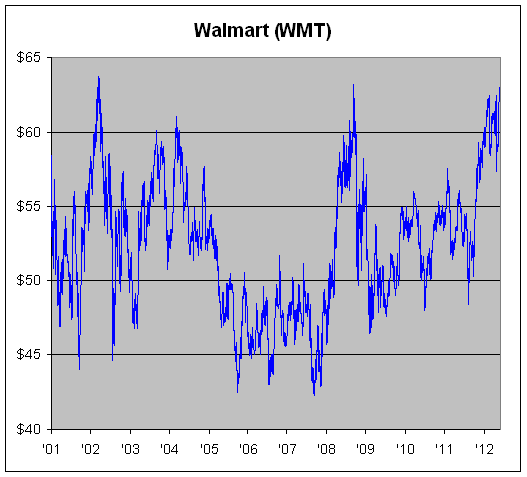
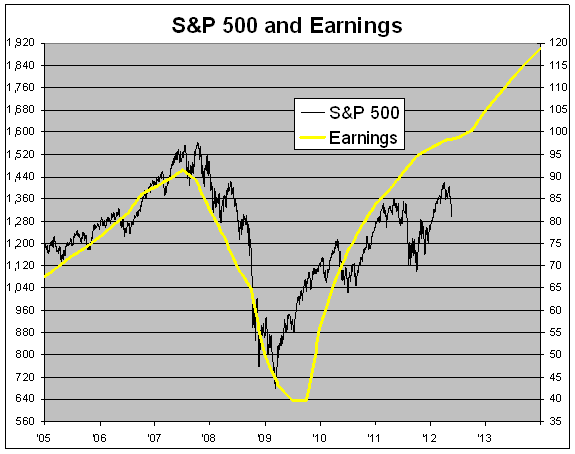
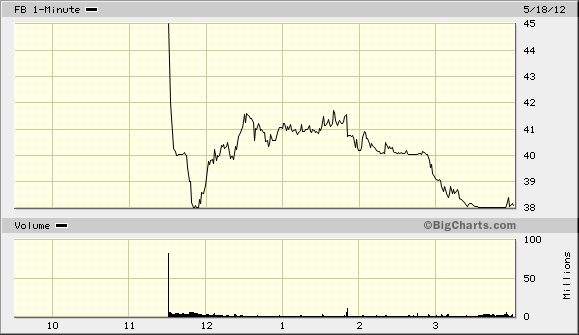
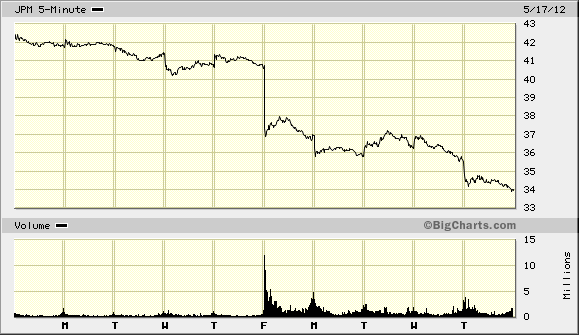
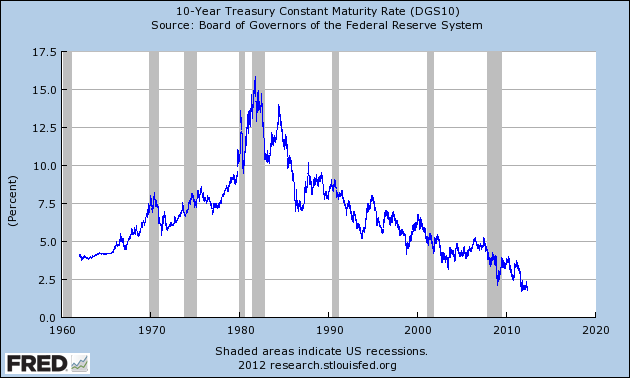
 Eddy Elfenbein is a Washington, DC-based speaker, portfolio manager and editor of the blog Crossing Wall Street. His
Eddy Elfenbein is a Washington, DC-based speaker, portfolio manager and editor of the blog Crossing Wall Street. His